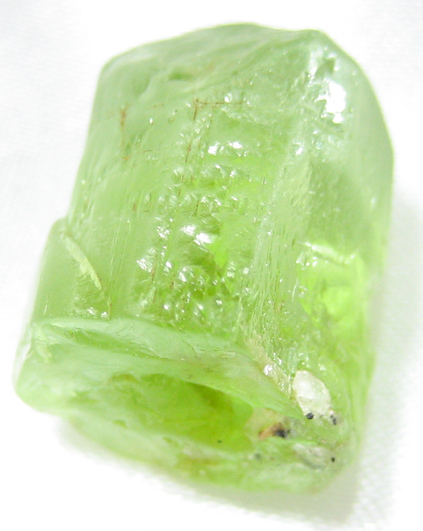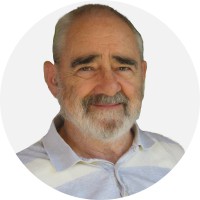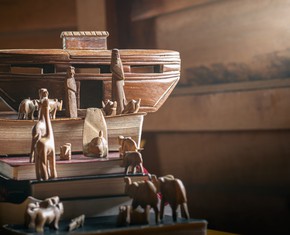The views expressed in our content reflect individual perspectives and do not represent the authoritative views of the Baha'i Faith.
In part 1 in this series of essays, we learned that the human memory literally records everything a person thinks, decides, sees, hears, touches, smells and tastes during a day–and that we may all somehow take these defining memories with us into the afterlife.
Some individuals, such as savants, have a remarkable photographic degree of access to these memories right here in this life. Most of us do not—but recent science indicates our brains may store them nevertheless. These rare memory abilities, researchers have learned, have a remarkably literal quality. Those that outwardly possess them can, for instance:
- replay a composition on an instrument after hearing it only once
- calculate the day of the week for a date hundreds of years in the past
- draw a remembered scene in astonishing detail
- calculate the value of pi to many hundreds of decimals, an accomplishment thought to depend on memorization as well as calculation
- exactly recall pages in a book long after reading them
Chrysolite
In Baha’u’llah’s book of mystical aphorisms The Hidden Words, he wrote:
Think not the deeds ye have committed have been blotted from My sight. By My beauty! All your doings hath My Pen graven with open characters upon tablets of chrysolite. – The Hidden Words, p. 44.
 You may not have heard of the mineral chrysolite, mentioned in the Old Testament and in the writings of Socrates. It means ’golden stone’, and usually refers to the green gem called peridot. Reputedly Cleopatra’s favorite gemstone, it can be similar in appearance to topaz. It has conchoidal fractures, as in glass, so it can be very finely engraved, which means it doesn’t split, crack or present difficulties to the engraver who incises it. A tablet of chrysolite therefore has the ability to hold a great amount of detail permanently.
You may not have heard of the mineral chrysolite, mentioned in the Old Testament and in the writings of Socrates. It means ’golden stone’, and usually refers to the green gem called peridot. Reputedly Cleopatra’s favorite gemstone, it can be similar in appearance to topaz. It has conchoidal fractures, as in glass, so it can be very finely engraved, which means it doesn’t split, crack or present difficulties to the engraver who incises it. A tablet of chrysolite therefore has the ability to hold a great amount of detail permanently.
In Baha’u’llah’s passage from The Hidden Words, we can reasonably understand the phrase “open characters” to mean that our deeds and their import will become very clear–that the Creator notes everything we do in fine, objective and permanent detail.
Other scriptures emphasize that nothing escapes notice, not even the slightest fact or event. Christ said:
Are not two sparrows sold for a farthing? and one of them shall not fall on the ground without your Father. But the very hairs of your head are all numbered. Fear ye not therefore, ye are of more value than many sparrows. – Matthew 10:29.
Does this sound like the strangely fine-grained, precise memory described earlier in Part 1? Perhaps, then, we each have a metaphorical “tablet of chrysolite”—an accurate and detailed internal event recorder–located within us. With hypnosis, we can often retrieve the most obscure memories in an explicit and exact way, which certainly indicates we all have that potential capability.
How should we respond to this knowledge? In The Hidden Words, Baha’u’llah answers that question:
O son of being! Bring thyself to account each day ere thou art summoned to a reckoning; for death, unheralded, shall come upon thee and thou shalt be called to give account for thy deeds. – The Hidden Words, p. 11.
Many other scriptures also praise the value of a voluntary daily review of one’s actions, as in the Biblical injunctions: “sufficient unto the day is the evil thereof,” or “let not the sun go down upon your wrath.”
It seems we all turn a page at day’s end; we have until then to think the better of our actions before they are carved in stone, as the saying goes. Some deeds, of course, we can’t undo just by thinking about them, but sincere reflection can lead us to improved behavior and even to acts of restitution, compensating goodness and, hopefully, the restoration of honor.
We all have to sleep—everyone takes part in that imperative of our earthly existence. The Baha’i teachings recommend holding a personal reflection meeting with oneself, and considering our actions before we sleep. Something seems to happen during sleep that writes one full day into a permanent record both in our brain and in the next world. Perhaps our brain can then erase the physical version of this intensely detailed memory, to refresh itself and ready its memory banks for another day of deeds. How can we think about this further?
Thinking with Metaphors
Before the 16th Century invention of the first mechanical pumps, science did not recognize the key physical function of the human heart. We now have inventions—computers—that can help us recognize some of our key spiritual functions.
In our modern world we know that information, although intangible, clearly exists. Few of us could get by without today’s massive information flows and the systematic application of that information to a myriad practical uses. For example–we can readily see when our personal computer has run out of its memory storage capacity, when it needs a new hard drive. We know how to back up our data, and save the contents of our hard drive to another device for safe keeping. Many of us use computer networks that connect our personal computers to a larger server or to the “cloud,” knowing we can use that much larger capacity to archive content–which allows us to free up our machine’s limited memory to hold new information.
Our personal computer, like our brain, has a finite information capacity. It can only hold so much and only do a limited number of things at the same time. It cannot, for instance, continue to function as normal while backing up. Only large, sophisticated servers can do ’hot’ backups, that is, continue to work while copying their data elsewhere; such capabilities are beyond our personal machines.
Could we see analogies here? As spiritual beings, could we possibly build and refurbish our identity in the next world every time we sleep?
















Comments
Sign in or create an account
Continue with Googleor